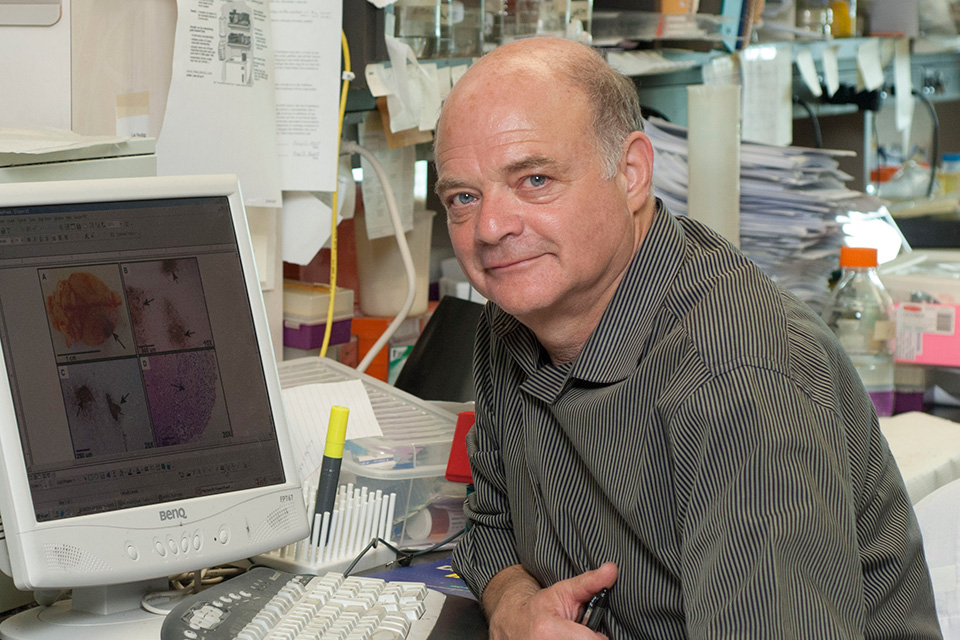Liver cancer co-opts blood vessels to become drug resistant
By Betty Zou
A new study led by researchers at Sunnybrook Research Institute (SRI) has provided the first evidence that tumours can thwart treatment with a type of drug called angiogenesis inhibitors by stealing blood vessels from neighbouring healthy tissues.
The findings, published today in the Journal of the National Cancer Institute, could explain why some tumours stop responding to treatment.
“In order for a cancer to grow beyond the size of a pinhead, it needs to keep making more blood vessels,” said Dr. Robert Kerbel, a senior scientist in the Odette Cancer Research Program at SRI and the study’s senior author.
Blood vessels supply oxygen and nutrients to tumours. By targeting the process of new blood vessel formation, or angiogenesis, drug treatments can prevent the cancer from growing and spreading to other parts of the body. But these antiangiogenic therapies are not a panacea, far from it—patients almost always develop resistance to the treatments.
To study this phenomenon of acquired resistance, Kerbel and his graduate student Elizabeth Kuczynski focused on hepatocellular carcinoma (HCC), a type of liver cancer for which there is only one approved therapy, the antiangiogenic drug sorafenib. While 35% to 43% of HCC tumours initially can be controlled by the drug, they inevitably develop treatment resistance. “[Sorafenib] is a very toxic drug. When tumours respond patients get a benefit, but there are side effects and they always stop responding,” says Kerbel, who is also a professor of medical biophysics at the University of Toronto.
Working with with Dr. Andrew Reynolds at the Institute of Cancer Research in London, U.K. and Dr. Stuart Foster at SRI, Kuczynski and Kerbel showed that the sorafenib-resistant HCC tumours relied on existing blood vessels in the neighbouring healthy liver tissue instead of forming new blood vessels to sustain its growth. “These tumours cells are really clever,” says Kerbel. “What they’re doing is they’re usurping the normal [blood vessel network] that is present in these organs.” In contrast, HCC tumours that were held in check by sorafenib relied solely on new blood vessels generated through angiogenesis.
By stealing existing blood vessels, a process known as vessel co-option, tumours shed their dependence on angiogenesis, thereby rendering antiangiogenic therapies ineffective, and all the while people are dealing with adverse effects.
The researchers, in collaboration with Dr. George Yousef at St. Michael’s Hospital, also found the sorafenib-resistant HCC tumours underwent a genetic switch that enabled the tumour cells to become more mobile and infiltrate adjacent tissues. Their findings provide important insight into how tumours become resistant to treatments and identify two new potential drug targets—the switch from angiogenesis to vessel co-option and the co-opted blood vessels themselves.
“Maybe you could do something that will delay that switch, so that instead of happening after three months it happens after three years,” says Kerbel. “That would have an effect on prolonging patient survival.”
This study was funded by Breast Cancer Now, the Canadian Institutes of Health Research, Canadian Liver Foundation and Worldwide Cancer Research.



